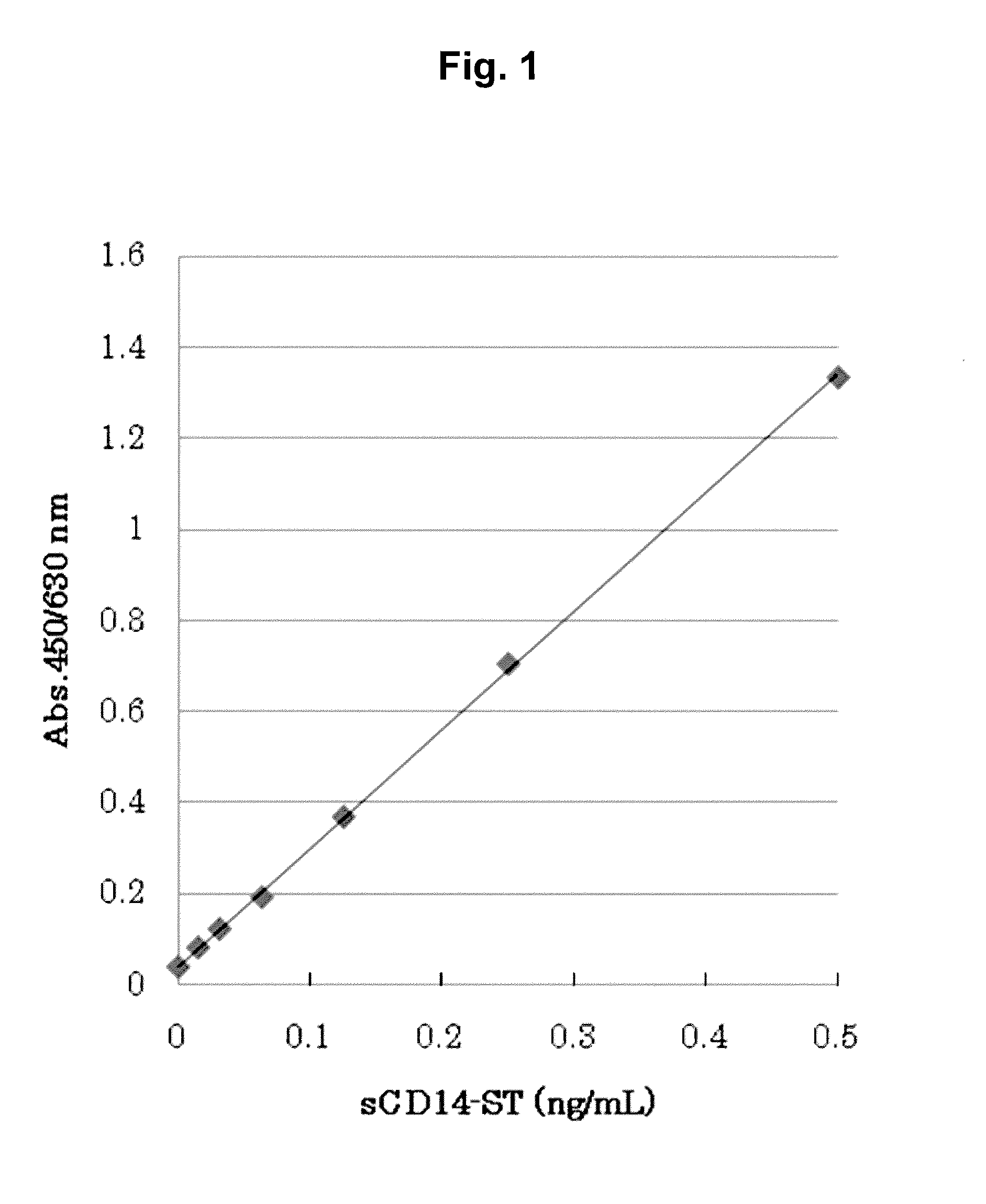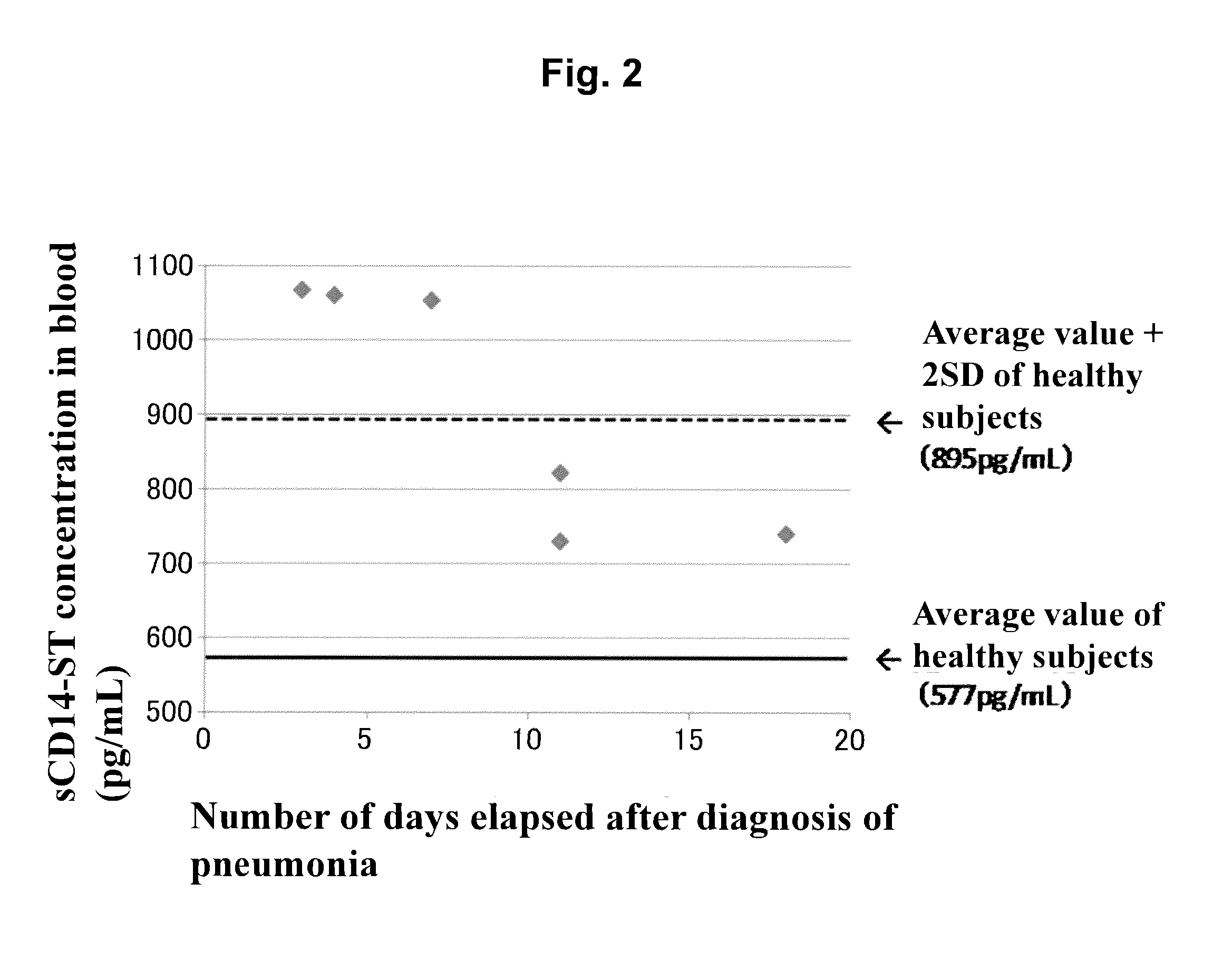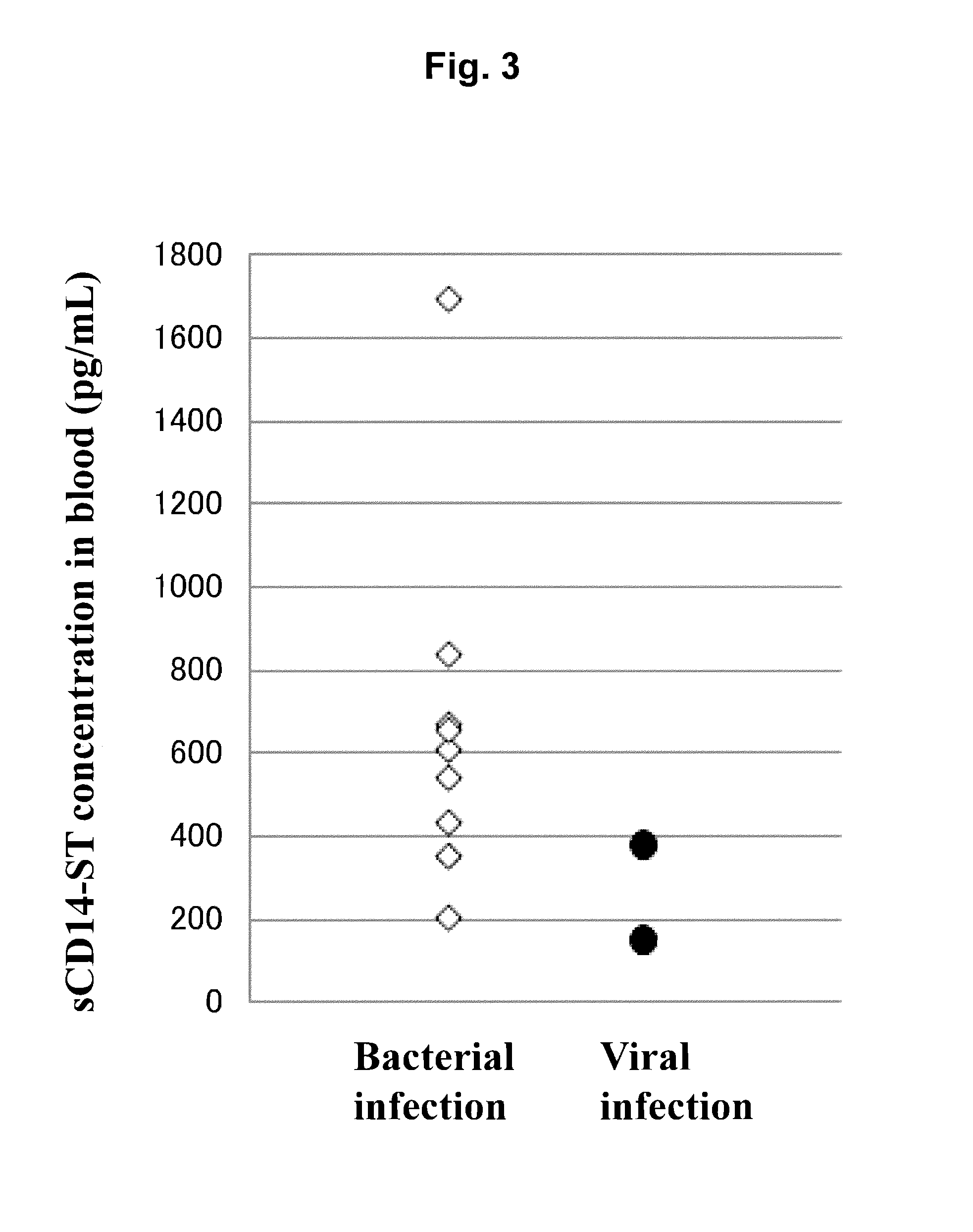Diagnosis of respiratory tract infectious disease using blood specimens
a technology for respiratory tract infections and blood specimens, applied in the field of respiratory infection detection, can solve problems such as inability to deny bacteria infection, and achieve the effects of reducing the administration period of antibiotics, high specificity, and high sensitivity
- Summary
- Abstract
- Description
- Claims
- Application Information
AI Technical Summary
Benefits of technology
Problems solved by technology
Method used
Image
Examples
example 1
Production of Blood sCD14-ST Measurement System
(1-1) Preparation of Peroxidase-Labeled Antibody
[0123]In order to produce a sandwich ELISA system, the F1106-13-3 antibody described in International Publication WO2004 / 044005 was labeled with peroxidase. First, the F1106-13-3 antibody was digested with Lysyl Endopeptidase (Wako Pure Chemical Industries, Ltd.) to produce F(ab′)2. Specifically, the F1106-13-3 antibody was dialyzed against 50 mM Tris-HCl (pH 8.5), and the resulting antibody was then mixed with Lysyl Endopeptidase (wherein the molar ratio was 10:1). The obtained mixture was reacted at 37° C. for 1 hour. Thereafter, TLCK (Sigma) was added to the reaction product to a final concentration of 30 mM, so as to terminate the reaction. Subsequently, to remove Fc, the reaction solution was added to a Protein A column (Prosep-A; Millipore), and an unadsorbed product was then recovered. The thus recovered unadsorbed fraction was concentrated, and was then purified by gel filtration (...
example 2
Measurement of sCD14-ST in Blood
[0126]By using the sandwich EIA system prepared in Example 1, concentrations of sCD14-ST in serums (20-fold dilution) of 10 normal subjects (purchased from ProMedDx, LLC) and of 6 patients with pneumonia associated with bacterial infection (community-acquired pneumonia) (purchased from Bioreclamation, LLC) were measured. As a result, as shown in Table 1, the average value of sCD14-ST concentration in blood samples of normal subjects was 577 pg / mL, and SD was 159 pg / mL. The average value of that of patients with pneumonia was 729 to 1067 pg / mL. As shown in FIG. 2 in which the number of days from the day of diagnosis as pneumonia to the day of sampling was plotted on the abscissa and the concentration of sCD14-ST on the ordinate, the smaller number of days from diagnosis led to higher concentration and the larger number of days from diagnosis led to lower concentration. In general, initiation of administering an antibiotic within 4 hours after diagnosis...
example 3
Selection of Patients with Respiratory Infection to Receive an Antibiotic by Using the sCD14-ST Concentration as an Indication
[0128]Patients showing at least breathing difficulty or cough as a clinical finding and suspected to have respiratory infection are assigned to a control group to receive usual treatment with an antibiotic, and a sCD14-ST group to receive treatment with the antibiotic by using the sCD14-ST concentration as an indication. The control group patients receive the antibiotic at a physician's discretion as usual. The sCD14-ST group patients receive the antibiotic depending on a measured value of sCD14-ST in a blood sample; when the measured value of sCD14-ST is higher than a normal value, administration of the antibiotic is recommended, and when the measured value of sCD14-ST is equal to the normal value or lower than the normal value, administration of the antibiotic is not recommended.
[0129]Symptomatic improvement in both groups of patients is evaluated at 2, 4, ...
PUM
| Property | Measurement | Unit |
|---|---|---|
| concentration | aaaaa | aaaaa |
| concentration | aaaaa | aaaaa |
| concentration | aaaaa | aaaaa |
Abstract
Description
Claims
Application Information
 Login to View More
Login to View More - R&D
- Intellectual Property
- Life Sciences
- Materials
- Tech Scout
- Unparalleled Data Quality
- Higher Quality Content
- 60% Fewer Hallucinations
Browse by: Latest US Patents, China's latest patents, Technical Efficacy Thesaurus, Application Domain, Technology Topic, Popular Technical Reports.
© 2025 PatSnap. All rights reserved.Legal|Privacy policy|Modern Slavery Act Transparency Statement|Sitemap|About US| Contact US: help@patsnap.com



